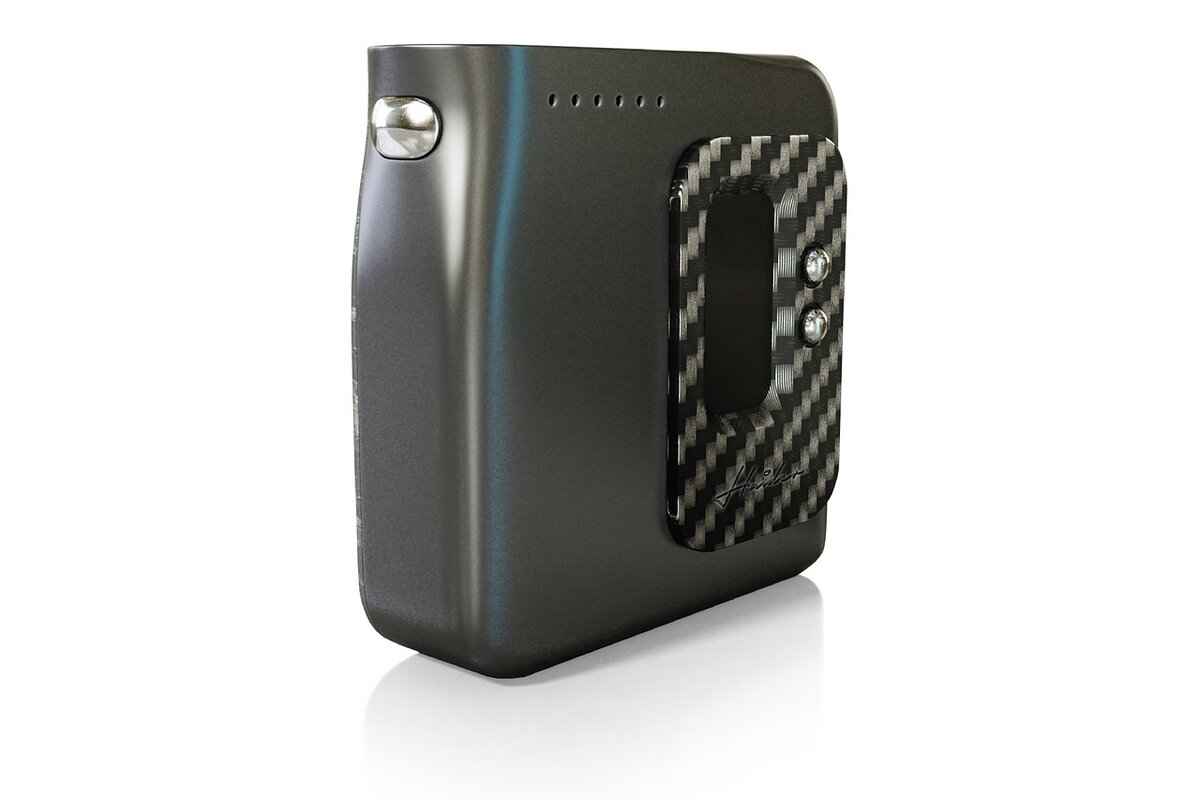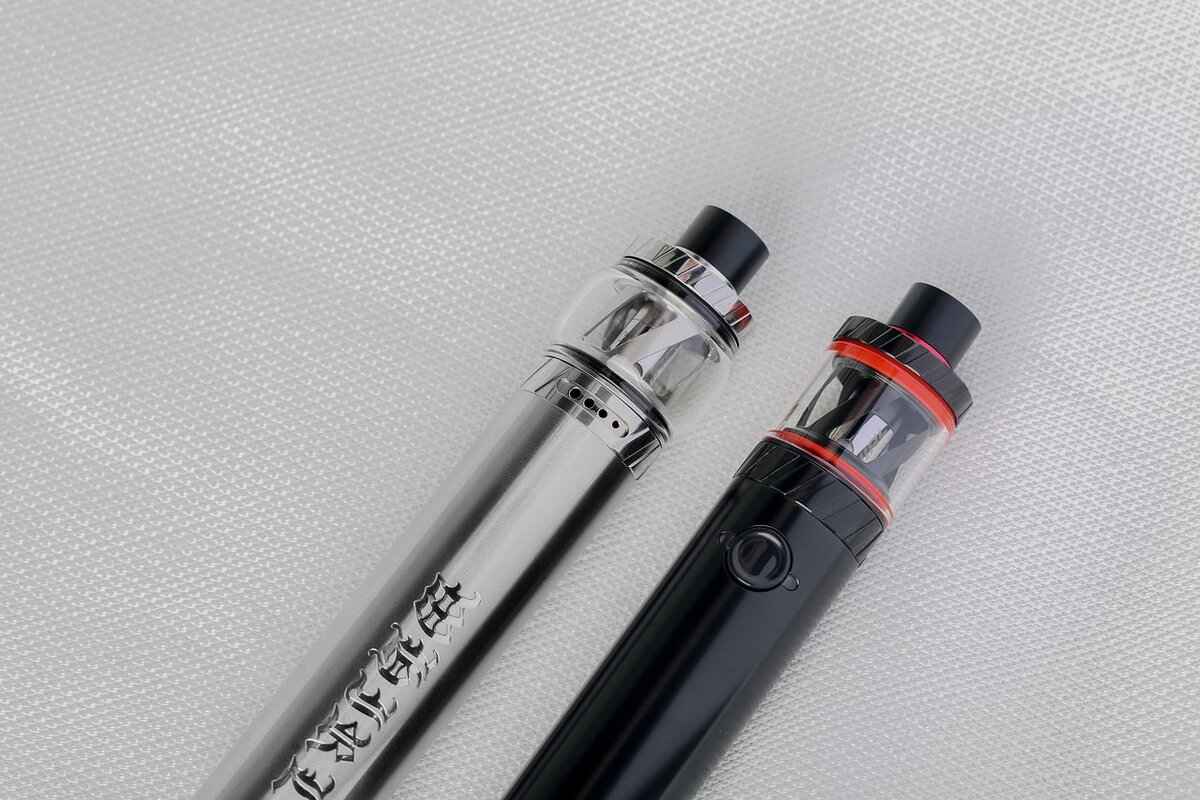is gaining increasing attention as more individuals adopt vaping as an alternative to traditional smoking. Understanding how vaping influences sleep patterns is essential for those who wish to maintain their overall health and well-being.
Vaping introduces various substances into the body, primarily nicotine, which can significantly disrupt sleep cycles. Research indicates that nicotine can lead to increased alertness and a delay in the body’s natural sleep-wake cycle. This disruption can result in difficulties falling asleep, reduced sleep duration, and overall poor sleep quality.
Several sleep disorders have been associated with vaping habits. Common issues include:
- Insomnia: Many vapers report challenges with falling asleep and staying asleep.
- Sleep Apnea: This serious condition is characterized by interrupted breathing during sleep, which can be exacerbated by vaping.
- Restless Leg Syndrome: This disorder can cause uncomfortable sensations in the legs, often leading to sleep disturbances.
Insomnia is particularly prevalent among vapers. The stimulating effects of nicotine can lead to an inability to relax, making it difficult to both fall asleep and maintain sleep throughout the night.
Nicotine’s impact on sleep onset is profound; it interferes with the body’s natural ability to transition into sleep. Studies show that nicotine can alter the timing of the circadian rhythm, leading to delayed sleep onset.
Frequent nighttime awakenings are another concern for vapers. The body’s response to nicotine can cause restlessness, leading to multiple awakenings during the night and reducing overall sleep quality.
Recent studies suggest a correlation between vaping and the severity of sleep apnea. The inhalation of vapor can lead to inflammation in the airways, exacerbating breathing issues during sleep.
Various chemicals found in vape products can have detrimental effects on sleep quality. These include:
- Propylene Glycol and Vegetable Glycerin: These base ingredients can cause respiratory issues, which may interfere with sleep.
- Flavorings: Some flavoring agents can irritate the airways, further affecting sleep quality.
Vaping may also contribute to heightened levels of stress and anxiety, which are known to disrupt sleep. The psychological effects of vaping can create a cycle where individuals rely on vaping for stress relief, yet find that it negatively impacts their ability to sleep.
While vaping may initially seem like a method for managing stress, it can paradoxically lead to increased anxiety levels, further complicating sleep issues.
For those who vape, enhancing sleep quality is crucial. Here are some actionable tips:
- Setting a Consistent Sleep Schedule: Establishing a regular sleep routine can significantly improve sleep quality.
- Reducing Nicotine Intake Before Bed: Minimizing nicotine consumption in the hours leading up to sleep can promote better rest.
Exploring alternatives to vaping can be beneficial for sleep quality. Consider options such as:
- Herbal Teas: Certain herbal teas are known for their calming properties and can promote relaxation.
- Mindfulness and Relaxation Techniques: Practices such as meditation and deep breathing can help mitigate the effects of vaping on sleep.

How Does Vaping Affect Sleep Quality?
The relationship between vaping and sleep quality is a complex one, with various factors contributing to how vaping can impact our nightly rest. Understanding these physiological impacts is essential for anyone who vapes, as it can lead to significant changes in sleep patterns and overall health.
The presence of nicotine and other chemicals in vape products can significantly disrupt sleep cycles. Nicotine, a well-known stimulant, can interfere with the body’s natural ability to fall asleep and stay asleep. When consumed, nicotine stimulates the release of neurotransmitters that can heighten alertness, making it more challenging to transition into the deeper stages of sleep.
Moreover, the inhalation of vapor can lead to respiratory issues, which may further complicate sleep. Individuals who vape may experience increased coughing or throat irritation, making it difficult to achieve restful sleep. The impact of these substances can lead to fragmented sleep patterns, where individuals wake up multiple times throughout the night, diminishing overall sleep quality.
What Are the Common Sleep Disorders Linked to Vaping? Vaping is associated with several sleep disorders, including insomnia, sleep apnea, and restless leg syndrome. Insomnia, in particular, is a prevalent concern among vapers. The stimulating effects of nicotine can lead to difficulties in both falling asleep and maintaining sleep, resulting in a cycle of fatigue and irritability.
Another serious condition, sleep apnea, may also be exacerbated by vaping. This condition is characterized by interrupted breathing during sleep, which can be worsened by inflammation in the airways caused by inhaling vapor. The combination of these factors can lead to a decrease in overall sleep quality and an increase in daytime sleepiness.
What Chemicals in Vape Products Influence Sleep? The ingredients in vape products can also play a significant role in sleep disturbances. Propylene glycol and vegetable glycerin, commonly used as base ingredients in vape liquids, may contribute to respiratory issues that can interfere with sleep. These substances can lead to throat irritation and increased mucus production, making it more difficult to breathe comfortably at night.
Additionally, the flavorings used in vape products can have their own effects on sleep quality. Some flavoring agents may cause allergic reactions or respiratory discomfort, further complicating the ability to achieve restful sleep. Understanding these chemicals and their potential impact is crucial for vapers who wish to maintain healthy sleep patterns.
Can Vaping Lead to Increased Stress and Anxiety? Vaping is often perceived as a stress-relief mechanism, but it can paradoxically contribute to heightened stress and anxiety levels. The act of vaping may create a temporary sense of calm; however, the long-term effects of nicotine dependence can lead to increased anxiety, especially during withdrawal periods. This cycle can exacerbate sleep issues, as stress and anxiety are known disruptors of sleep quality.
What Practical Tips Can Help Improve Sleep for Vapers? For those who vape, there are several strategies that can be employed to enhance sleep quality. Establishing a consistent sleep schedule is vital. Going to bed and waking up at the same time each day can help regulate the body’s internal clock, promoting better sleep.
Additionally, reducing nicotine intake in the hours leading up to bedtime can be beneficial. This allows the body to relax and prepare for sleep without the stimulating effects of nicotine. Other tips include creating a calming bedtime routine, limiting screen time, and ensuring a comfortable sleep environment.
Are There Alternatives to Vaping for Better Sleep? Exploring alternatives to vaping can also support better sleep quality. Herbal remedies, such as chamomile or valerian root tea, are known for their calming properties and can promote relaxation. Mindfulness practices, including meditation and deep breathing exercises, can also help mitigate the stress and anxiety associated with vaping, leading to improved sleep outcomes.

What Are the Common Sleep Disorders Linked to Vaping?
Vaping has become a popular alternative to traditional smoking, but its effects on health are still being studied. One area of concern is its impact on sleep quality. This section delves into the common sleep disorders associated with vaping, including insomnia, sleep apnea, and restless leg syndrome, highlighting how these conditions may be intensified by vaping habits.
As vaping continues to rise in popularity, research indicates that it may be linked to several sleep disorders. Understanding these connections is crucial for vapers who may be experiencing sleep disturbances.
- Insomnia: Many vapers report difficulties in falling asleep and staying asleep. The stimulating effects of nicotine can lead to an increased heart rate and heightened alertness, making it challenging to achieve restful sleep.
- Sleep Apnea: This serious condition, characterized by interrupted breathing during sleep, may be exacerbated by vaping. The inhalation of various chemicals can lead to inflammation in the airways, increasing the risk of sleep apnea.
- Restless Leg Syndrome: Some studies suggest that nicotine use can worsen symptoms of restless leg syndrome, a condition that causes uncomfortable sensations in the legs and an uncontrollable urge to move them, particularly at night.
Insomnia is particularly prevalent among vapers. The stimulating properties of nicotine can disrupt the body’s natural sleep-wake cycle, leading to difficulties in both sleep onset and maintenance. Users may find themselves tossing and turning, unable to reach the deep sleep stages necessary for restorative rest.
Nicotine affects the brain’s neurotransmitters, which play a vital role in regulating sleep. By increasing levels of dopamine and other stimulatory chemicals, nicotine can delay the onset of sleep, making it harder for users to fall asleep at a reasonable hour.
Vaping may also contribute to increased nighttime awakenings. The act of vaping can stimulate the body’s alertness, leading to disruptions in sleep continuity. This can result in feeling unrested and fatigued during the day.
Research has indicated a potential link between vaping and sleep apnea. The inhalation of harmful substances can lead to airway inflammation, which may contribute to the severity of sleep apnea symptoms. Individuals who vape may experience more frequent and severe apnea episodes, leading to fragmented sleep and decreased overall sleep quality.
The ingredients in vape products can also play a significant role in sleep disturbances. Understanding the chemicals present in these products is essential for vapers concerned about their sleep health.
- Nicotine: As mentioned, nicotine is a primary ingredient in many vape products and is well-known for its stimulating effects, which can disrupt sleep.
- Propylene Glycol and Vegetable Glycerin: These base ingredients may cause respiratory issues, which can further impact sleep quality. Difficulty breathing can exacerbate conditions like sleep apnea.
- Flavorings: Some flavoring agents can irritate the respiratory system, potentially leading to sleep disturbances.
Stress and anxiety are significant contributors to sleep disorders. Vaping may create a paradoxical situation where individuals use it to relieve stress but end up exacerbating anxiety levels, ultimately affecting sleep quality.
Vaping is often perceived as a stress reliever; however, the dependency on nicotine can lead to increased anxiety when cravings arise. This cycle can create a detrimental effect on sleep, as heightened stress levels make it difficult to relax and fall asleep.
In summary, the connection between vaping and sleep disorders is complex and multifaceted. By understanding these relationships, vapers can take proactive steps to improve their sleep quality and overall health.
Insomnia: A Vaping-Related Concern?
Insomnia is an increasingly common issue among individuals who vape, raising concerns about the impact of nicotine on sleep quality. This section delves into how the stimulating effects of nicotine can lead to challenges in both falling asleep and maintaining restful sleep throughout the night.
Vaping products often contain nicotine, a known stimulant that can significantly disrupt the body’s natural sleep-wake cycle. When consumed, nicotine increases levels of adrenaline, which can lead to heightened alertness and make it more difficult to unwind at bedtime. This physiological response can create a cycle where vapers find themselves struggling to achieve the deep, restorative sleep necessary for overall health.
To better understand the relationship between vaping and insomnia, it is essential to consider the following factors:
- Nicotine’s Half-Life: The half-life of nicotine is approximately 2 hours, meaning it can remain in the body for several hours after consumption. This prolonged presence can interfere with sleep initiation and maintenance.
- Withdrawal Symptoms: For regular vapers, the absence of nicotine during sleep can lead to withdrawal symptoms, including restlessness and irritability, which can further exacerbate insomnia.
- Increased Heart Rate: Nicotine can elevate heart rate and blood pressure, making it challenging for the body to relax and transition into sleep.
Moreover, the act of vaping itself can become a ritual that disrupts bedtime routines. Many individuals may find themselves reaching for their vape pens as a way to wind down, only to experience the opposite effect. This paradox highlights the need for vapers to reassess their nighttime habits and consider the potential consequences on their sleep quality.
In addition to nicotine, other chemicals in vape products can also contribute to sleep disturbances. For instance, flavoring agents and additives can irritate the respiratory system, leading to breathing difficulties that may further impact sleep. Individuals suffering from conditions like asthma or other respiratory issues may find their symptoms exacerbated by vaping, resulting in poorer sleep quality.
Addressing insomnia related to vaping requires a multifaceted approach. Here are some practical tips for vapers looking to improve their sleep:
- Limit Vaping Before Bed: Try to avoid vaping at least an hour before sleep to allow the body to wind down and reduce nicotine levels.
- Create a Relaxing Bedtime Routine: Incorporate calming activities such as reading, meditation, or gentle stretching to signal to your body that it is time to sleep.
- Consider Reducing Nicotine Levels: Gradually decreasing nicotine intake can help mitigate its stimulating effects and improve overall sleep quality.
In conclusion, the relationship between vaping and insomnia is complex and multifaceted. By understanding how nicotine and other substances in vape products can disrupt sleep patterns, individuals can take proactive steps to enhance their sleep quality. Implementing practical strategies and being mindful of vaping habits can lead to improved rest and overall well-being.
How Nicotine Affects Sleep Onset
The impact of nicotine on sleep onset is a critical area of study, particularly in the context of vaping. Understanding how nicotine interacts with the body’s natural sleep-wake cycle can shed light on why many vapers experience sleep disturbances.
Nicotine, a potent stimulant, can significantly alter the body’s ability to transition into sleep. When consumed, it stimulates the release of neurotransmitters such as dopamine and norepinephrine, which enhance alertness and energy levels. This stimulation can delay the onset of sleep, making it challenging for users to fall asleep at their desired time.
Moreover, nicotine affects the circadian rhythm, the internal clock that regulates sleep patterns. Research indicates that nicotine consumption, especially in the evening, can lead to a misalignment of this rhythm, causing difficulties in both falling asleep and achieving restorative sleep. The body’s natural inclination to prepare for sleep is disrupted, leading to prolonged sleep latency.
In addition to delaying sleep onset, nicotine may also reduce the overall quality of sleep. Studies have shown that vapers often experience lighter sleep and spend less time in the deeper stages of sleep, such as REM (Rapid Eye Movement) sleep. This reduction in REM sleep can lead to feelings of fatigue and grogginess upon waking, further perpetuating a cycle of sleep deprivation.
Furthermore, the withdrawal symptoms associated with nicotine can also play a role in sleep disturbances. As the body metabolizes nicotine, vapers may experience cravings or irritability during the night, leading to frequent awakenings and difficulty returning to sleep. This cycle can create a negative feedback loop, where poor sleep leads to increased cravings for nicotine, which in turn leads to further sleep disruption.
To mitigate the impact of nicotine on sleep onset, vapers can consider several strategies:
- Limit nicotine intake in the hours leading up to bedtime. Reducing consumption can help the body prepare for sleep more effectively.
- Establish a relaxing bedtime routine that promotes winding down. Activities such as reading or gentle stretching can signal the body that it is time to sleep.
- Create a sleep-conducive environment by ensuring the bedroom is dark, quiet, and cool, which can facilitate better sleep quality.
In summary, the effects of nicotine on sleep onset are multifaceted, involving both physiological and psychological components. By understanding these effects and implementing practical strategies, vapers can take steps to improve their sleep quality and overall well-being.
Can Vaping Lead to Nighttime Awakenings?
The topic of vaping has gained significant attention in recent years, particularly regarding its effects on health and well-being. One area that warrants exploration is the potential for increased nighttime awakenings among vapers. Understanding this connection is essential for those who prioritize sleep quality and overall health.
Vaping introduces various substances into the body, most notably nicotine, which is known for its stimulating effects. When consumed, nicotine can interfere with the body’s natural sleep cycles, leading to potential disruptions during the night. Studies have shown that nicotine can increase heart rate and stimulate the central nervous system, making it harder for individuals to fall asleep and stay asleep.
Frequent nighttime awakenings can have profound effects on sleep quality. These interruptions can lead to feelings of exhaustion and decreased cognitive function during the day. Additionally, they can exacerbate existing sleep disorders, such as insomnia and sleep apnea, creating a vicious cycle of poor sleep and increased reliance on vaping to cope with daytime fatigue.
Many vape products contain a variety of chemicals and flavorings that may further complicate sleep quality. For instance, propylene glycol and vegetable glycerin, common base ingredients in vape liquids, can irritate the respiratory system. This irritation can lead to coughing or difficulty breathing, both of which can disrupt sleep. Additionally, certain flavorings may also have adverse effects on respiratory health, further impacting sleep quality.
Nicotine’s stimulating properties can lead to increased alertness, making it difficult for vapers to transition into a restful state. As the body metabolizes nicotine, withdrawal symptoms can also occur during the night, leading to awakenings. These factors collectively contribute to a reduced quality of sleep and may cause individuals to wake more frequently throughout the night.
Beyond the physiological impacts, there are also psychological components to consider. Many individuals turn to vaping as a means of stress relief. However, this reliance can paradoxically lead to increased anxiety levels, particularly when the body craves nicotine during the night. This heightened anxiety can result in a restless night, further complicating the relationship between vaping and sleep.
- Establish a Relaxing Bedtime Routine: Engaging in calming activities before bed can help signal to the body that it is time to wind down.
- Limit Nicotine Intake: Reducing nicotine consumption in the hours leading up to sleep can promote more restful nights.
- Create a Comfortable Sleep Environment: Ensuring a dark, quiet, and cool bedroom can significantly enhance sleep quality.
In conclusion, the potential for increased nighttime awakenings due to vaping is a significant concern for many individuals. By understanding the various factors that contribute to sleep disturbances, vapers can take proactive steps to improve their sleep quality and overall well-being. While vaping may serve as a temporary solution for stress relief, it is essential to recognize its potential impacts on sleep and address them accordingly.
Sleep Apnea and Vaping: Is There a Link?
The relationship between vaping and sleep apnea is a growing concern in the field of sleep medicine. Sleep apnea is a serious condition characterized by repeated interruptions in breathing during sleep, which can lead to various health complications. With the rise in vaping popularity, understanding its potential impact on sleep apnea is essential for both vapers and healthcare providers.
Research indicates that the ingredients found in vape products may play a role in exacerbating sleep apnea symptoms. The primary culprit appears to be nicotine, which can lead to inflammation and airway constriction. This section delves into how these physiological changes can disrupt normal breathing patterns during sleep.
- Snoring: A common symptom of sleep apnea, often intensified by the airway irritation caused by vaping.
- Daytime Fatigue: Vapers may experience increased daytime sleepiness due to disrupted sleep cycles.
- Frequent Nighttime Awakenings: Vaping may lead to interrupted sleep, causing individuals to wake frequently throughout the night.
For individuals already diagnosed with sleep apnea, vaping can worsen their condition. The inhalation of vapor can lead to increased airway resistance and inflammation, making it more challenging for the body to maintain proper breathing during sleep. Additionally, the habit of vaping may lead to poor sleep hygiene, further compounding the issue.
Vape products contain a variety of chemicals, some of which can negatively affect respiratory health. Propylene glycol and vegetable glycerin, common base ingredients in vape liquids, can cause irritation in the airways. Furthermore, flavoring agents may also contribute to respiratory issues, which can exacerbate sleep apnea symptoms.
Nicotine is a stimulant that can significantly disrupt sleep patterns. When consumed, it can lead to increased heart rate and heightened alertness, making it difficult for individuals to fall asleep. For those with sleep apnea, this can be particularly problematic, as the combination of disrupted sleep and breathing difficulties can lead to severe health consequences.
For those concerned about the impact of vaping on sleep quality and sleep apnea, exploring alternatives is crucial. Options such as herbal remedies, relaxation techniques, and lifestyle changes can support better sleep without the risks associated with vaping.
- Establish a Sleep Routine: Setting a consistent sleep schedule can help regulate your body’s internal clock.
- Avoid Vaping Before Bed: Reducing or eliminating vaping in the hours leading up to sleep can improve overall sleep quality.
- Practice Relaxation Techniques: Methods such as deep breathing or meditation can help ease the mind and body, promoting better sleep.
In conclusion, the link between vaping and sleep apnea is an area that warrants further investigation. As more individuals turn to vaping, understanding its potential impacts on sleep health becomes increasingly important. By recognizing the risks and making informed choices, vapers can take steps toward improving their sleep quality and overall well-being.

What Chemicals in Vape Products Influence Sleep?
The use of vape products has surged in popularity over recent years, leading to increased scrutiny regarding their health implications. One area of concern is the impact of various chemicals found in these products on sleep quality. Understanding these substances and their effects can help vapers make informed choices about their habits.
Vape products contain a range of chemicals that can significantly affect sleep patterns. This section explores specific substances commonly found in vaping products and their potential impacts on sleep quality.
Nicotine is one of the most well-known chemicals in vape products, and it has profound effects on sleep. As a stimulant, nicotine can lead to increased alertness and a delay in sleep onset. Research indicates that nicotine may disrupt the body’s natural circadian rhythms, making it harder for individuals to fall asleep and stay asleep throughout the night.
The base ingredients in many vape liquids, propylene glycol and vegetable glycerin, can also influence sleep quality. These substances can cause respiratory irritation, which may lead to difficulties in breathing during sleep. Poor respiratory health can exacerbate conditions like sleep apnea, further impacting sleep quality.
Certain flavoring agents used in vape products can contribute to sleep disturbances. Some flavorings may contain chemicals that irritate the lungs or throat, which can lead to coughing or discomfort during sleep. Additionally, the artificial nature of many flavorings may have unknown long-term effects on health, including sleep quality.
Vaping devices can release heavy metals and other toxins into the vapor, which may have negative health effects. Exposure to these substances can lead to inflammation and respiratory issues, both of which can disrupt sleep. Studies have shown that higher levels of inflammation are linked to sleep disorders, making this a critical area of concern for vapers.
Another group of chemicals, carbonyl compounds, can be released during the heating of vape liquids. These compounds can contribute to respiratory distress and may have a negative impact on sleep quality. The inhalation of carbonyls can lead to increased oxidative stress, which has been associated with sleep disturbances.
The interaction of these various chemicals can create a compounded effect on sleep quality. For instance, the stimulating effects of nicotine combined with the respiratory irritants found in vape products can lead to a cycle of poor sleep. This cycle can perpetuate the need for more nicotine, creating a dependency that further disrupts healthy sleep patterns.
For those who vape, understanding the impact of these chemicals on sleep is essential. Reducing nicotine intake, choosing vape products with fewer harmful additives, and maintaining a consistent sleep schedule can all contribute to better sleep quality. Additionally, vapers might consider alternatives to vaping, such as herbal remedies or relaxation techniques, to support healthier sleep habits.
As research continues to evolve, it is crucial for vapers to stay informed about the substances in their products and their potential effects on sleep and overall health.
The Role of Propylene Glycol and Vegetable Glycerin
Understanding the components of vape liquids is essential for grasping their potential effects on health, particularly regarding sleep quality. Among the primary ingredients are propylene glycol and vegetable glycerin, both of which serve as bases for many vape products. This section delves into how these substances may contribute to sleep disturbances and respiratory issues, ultimately affecting sleep quality.
Propylene glycol is a synthetic organic compound commonly used in food, pharmaceuticals, and personal care products. In vape liquids, it acts as a humectant, helping to retain moisture and create vapor when heated. While it is generally recognized as safe by health authorities, its inhalation may lead to adverse respiratory effects.
Vegetable glycerin is a natural compound derived from plant oils, often used in conjunction with propylene glycol in vape liquids. It is thicker and sweeter than propylene glycol, contributing to the vapor’s density and flavor. However, inhaling vegetable glycerin can also pose risks, particularly to respiratory health.
Both propylene glycol and vegetable glycerin can contribute to sleep disturbances in several ways. For instance, the inhalation of these compounds may lead to respiratory irritation, causing discomfort during the night. This irritation can trigger coughing or wheezing, disrupting sleep and reducing overall sleep quality.
Research indicates that inhaling vape liquids containing propylene glycol and vegetable glycerin can lead to respiratory issues such as bronchitis or asthma-like symptoms. These conditions can exacerbate existing sleep disorders, making it challenging to achieve restful sleep. The inflammation caused by these substances may also lead to snoring or sleep apnea, further diminishing sleep quality.
Long-term exposure to the ingredients in vape liquids may result in chronic respiratory issues, which can have lasting effects on sleep quality. Studies suggest that persistent respiratory problems can lead to insomnia or other sleep disorders, creating a cycle of poor sleep and health deterioration.
- Reduce vaping before bedtime: Limiting the use of vape products in the hours leading up to sleep can help minimize respiratory irritation and improve sleep onset.
- Stay hydrated: Proper hydration can counteract some of the drying effects of propylene glycol and vegetable glycerin, promoting better respiratory health.
- Consider alternatives: Exploring non-vaping alternatives for relaxation, such as herbal teas or mindfulness practices, can support better sleep hygiene.
In summary, while propylene glycol and vegetable glycerin are common ingredients in vape liquids, their potential effects on sleep quality cannot be overlooked. By understanding these impacts and taking proactive steps, vapers can work towards improving their overall sleep health.
Flavorings and Their Impact on Sleep
Flavorings in vape products have become a popular addition, enticing users with a variety of tastes from fruity to dessert-like options. However, these flavoring agents may not only enhance the vaping experience but also have implications for sleep quality and overall health. Understanding how these additives can affect respiratory health and sleep is crucial for vapers seeking to improve their well-being.
Many vape products contain a mix of flavoring agents, including:
- Diacetyl: Often used in buttery flavorings, diacetyl has been linked to respiratory issues.
- Acetyl Propionyl: Similar to diacetyl, this compound is also associated with lung health concerns.
- Natural and Artificial Flavorings: These can include a variety of substances that may have unknown effects on health.
Research indicates that certain flavoring agents can irritate the respiratory system. For instance, inhaling diacetyl has been connected to a condition known as “popcorn lung,” which can severely impact lung function. This irritation can lead to inflammation and other respiratory issues, which may indirectly affect sleep quality.
The relationship between flavoring agents and sleep is complex. While the direct effects of flavorings on sleep are not extensively studied, the impact on respiratory health can lead to sleep disturbances. Poor respiratory function can result in:
- Increased Snoring: This can disrupt sleep for both the vaper and their partner.
- Sleep Apnea: Individuals with compromised respiratory health may experience more severe sleep apnea symptoms.
- Nighttime Coughing: Irritation from flavorings can cause coughing fits, interrupting sleep.
While the safety of many flavoring agents is still under investigation, it may be wise to avoid certain additives known for their adverse effects. Diacetyl and acetyl propionyl, for example, are best avoided due to their potential respiratory risks. Opting for products with fewer and more natural ingredients may be beneficial for those concerned about sleep quality.
For vapers looking to maintain or improve their sleep quality, consider the following strategies:
- Choose Quality Products: Research brands that prioritize safety and transparency in their ingredient lists.
- Limit Usage Before Bed: Reducing vaping in the hours leading up to sleep can help minimize respiratory irritation.
- Stay Hydrated: Keeping hydrated can help alleviate some of the throat irritation caused by inhaling vapor.
In conclusion, while flavorings in vape products can enhance the user experience, their potential impact on respiratory health and sleep quality should not be overlooked. By making informed choices about the products they use and being mindful of their vaping habits, individuals can work towards achieving better sleep.

Can Vaping Lead to Increased Stress and Anxiety?
Vaping has gained significant popularity in recent years, often marketed as a less harmful alternative to traditional smoking. However, many users may not realize that vaping can have unintended consequences on mental health, particularly concerning stress and anxiety. This section delves into how vaping may inadvertently contribute to elevated stress levels, ultimately impacting sleep quality.
Many individuals turn to vaping as a means of coping with stress. The act of inhaling vapor can provide a temporary sense of relief, creating a psychological association between vaping and relaxation. However, this reliance can lead to a cycle where the initial stress relief is followed by increased anxiety when the effects wear off, prompting users to vape more frequently.
Nicotine, a primary component in many vape products, is a known stimulant. While it may provide a brief boost in mood, it can also lead to heightened stress levels in the long run. Research suggests that nicotine can disrupt the body’s natural stress response, leading to increased feelings of anxiety and tension. As users become dependent on nicotine, the stress of withdrawal can further exacerbate these feelings, creating a vicious cycle.
Studies indicate a potential link between vaping and various anxiety disorders. Many vapers report experiencing symptoms of anxiety, including restlessness and irritability. This can be attributed to the effects of nicotine on the brain, which can alter neurotransmitter levels and disrupt emotional regulation. As a result, individuals may find themselves caught in a cycle where they vape to alleviate anxiety, only to experience heightened anxiety when not vaping.
The relationship between anxiety and sleep is well-documented. Increased anxiety can lead to difficulties in falling asleep and maintaining restful sleep. For vapers, the heightened anxiety associated with nicotine dependence can significantly impact sleep quality. Many users report experiencing insomnia or frequent nighttime awakenings, which can further contribute to feelings of stress and anxiety during the day.
Long-term vaping may lead to chronic stress and anxiety disorders, affecting not only sleep but overall mental well-being. As users become more reliant on vaping as a coping mechanism, they may neglect other healthier stress management techniques. This dependency can hinder personal growth and resilience, making it essential for individuals to recognize the potential mental health implications of their vaping habits.
- Mindfulness Practices: Engaging in mindfulness techniques such as meditation or yoga can help vapers manage stress without relying on nicotine.
- Physical Activity: Regular exercise is a proven method for reducing stress and improving mood, which can be beneficial for those trying to quit vaping.
- Seek Professional Help: Consulting with a mental health professional can provide support and strategies for managing anxiety and stress effectively.
- Limit Vaping: Gradually reducing vaping can help mitigate stress levels, allowing individuals to discover healthier coping mechanisms.
In conclusion, while vaping may initially seem like a stress-relieving activity, it can lead to increased anxiety and disrupted sleep patterns over time. Understanding the intricate relationship between vaping and mental health is crucial for individuals seeking to improve their overall well-being.
Is There a Psychological Component to Vaping and Sleep?
When exploring the intricate relationship between vaping and sleep, it becomes evident that there is a significant psychological component at play. While many individuals turn to vaping as a means of stress relief, it is essential to recognize that this habit can paradoxically contribute to sleep disturbances.
The act of vaping often provides a momentary escape from daily stressors. This behavior can be linked to the release of dopamine, a neurotransmitter associated with pleasure and reward. As individuals inhale vapor, they may experience a temporary sense of calm. However, this relief is often short-lived, leading to a cycle of dependence that can exacerbate feelings of anxiety and stress in the long run.
Stress is a well-documented disruptor of sleep quality. When the body is under stress, it produces higher levels of cortisol, a hormone that can interfere with the sleep-wake cycle. For those who vape, the initial calming effects of nicotine can give way to heightened anxiety as the effects wear off, leading to a vicious cycle where stress and sleep issues feed into each other.
Research suggests that individuals who vape may be more susceptible to various sleep disorders, including insomnia and sleep apnea. The stimulating effects of nicotine can make it challenging to fall asleep and stay asleep, creating an environment where restful sleep is difficult to achieve.
Nicotine acts as a stimulant, which can delay the onset of sleep and lead to frequent awakenings throughout the night. This disruption can prevent individuals from reaching the deeper stages of sleep that are crucial for recovery and overall well-being.
Given the potential for vaping to contribute to sleep issues, it is important for individuals to explore alternative coping mechanisms. Techniques such as mindfulness, meditation, and deep breathing exercises can serve as effective stress relievers without the adverse effects associated with vaping.
- Establish a Sleep Routine: Going to bed and waking up at the same time each day can help regulate your body’s internal clock.
- Limit Nicotine Intake: Reducing nicotine consumption, especially in the hours leading up to bedtime, can significantly improve sleep quality.
- Create a Relaxing Environment: Ensure your sleeping area is conducive to rest by minimizing light and noise.
- Consider Herbal Alternatives: Herbal teas like chamomile or valerian root can promote relaxation and improve sleep quality.
In conclusion, while vaping may initially appear to offer a means of stress relief, it is crucial to recognize the potential psychological and physiological consequences it may have on sleep quality. By understanding these dynamics, individuals can take proactive steps to enhance their overall well-being and achieve better sleep.

What Practical Tips Can Help Improve Sleep for Vapers?
For individuals who vape, enhancing sleep quality is a critical aspect of overall health. Sleep is essential for physical recovery, mental clarity, and emotional well-being. However, the act of vaping can complicate sleep hygiene and disrupt natural sleep patterns. This section outlines practical tips and strategies designed specifically for vapers to improve their sleep.
One of the most effective ways to improve sleep quality is by maintaining a consistent sleep schedule. Going to bed and waking up at the same time each day helps regulate your body’s internal clock, making it easier to fall asleep and wake up feeling refreshed. Here are some tips:
- Set a Fixed Bedtime: Choose a time to go to bed and stick to it, even on weekends.
- Create a Wind-Down Routine: Engage in relaxing activities, such as reading or taking a warm bath, for 30 minutes before bed.
- Avoid Stimulants: Reduce exposure to screens and bright lights in the hour leading up to sleep.
Nicotine is a known stimulant that can interfere with your ability to fall asleep. To promote better rest, consider the following:
- Avoid Vaping in the Evening: Try to limit or eliminate your vaping sessions at least two hours before bedtime.
- Gradually Decrease Nicotine Levels: If possible, gradually lower the nicotine concentration in your vape juice to reduce its stimulating effects.
Your sleep environment plays a significant role in sleep quality. Here are some ways to optimize your bedroom:
- Keep it Dark: Use blackout curtains to block out light, which can disrupt your sleep cycle.
- Maintain a Comfortable Temperature: A cool room (around 60-67°F) is generally ideal for sleep.
- Minimize Noise: Use earplugs or a white noise machine to drown out disruptive sounds.
Practicing relaxation techniques can help reduce the stress and anxiety that may be exacerbated by vaping. Consider these methods:
- Meditation: Spend a few minutes each day practicing mindfulness meditation to calm your mind.
- Deep Breathing Exercises: Try deep breathing exercises before bed to promote relaxation.
- Gentle Yoga: Engaging in gentle yoga can help relieve tension and prepare your body for sleep.
Some herbal remedies are known for their calming properties and can be beneficial for sleep:
- Chamomile Tea: Drinking chamomile tea before bed can help promote relaxation and improve sleep quality.
- Valerian Root: This herb is often used as a natural sleep aid and may be beneficial for vapers.
Both caffeine and alcohol can negatively impact sleep quality. Here’s how to manage their consumption:
- Avoid Caffeine in the Afternoon: Limit caffeine intake to the morning hours to prevent sleep disturbances.
- Limit Alcohol Consumption: While alcohol may help you fall asleep initially, it can disrupt your sleep later in the night.
By implementing these practical strategies, vapers can significantly improve their sleep hygiene and overall well-being. Prioritizing sleep not only enhances daily functioning but also contributes to better health outcomes in the long run.
Setting a Consistent Sleep Schedule
Establishing a consistent sleep schedule is a vital component of achieving better sleep quality. The human body thrives on routine, and maintaining regular sleep patterns can lead to significant improvements in overall well-being. In this section, we will explore the importance of a sleep schedule, practical tips for creating one, and how to stick to it effectively.
Why is a Regular Sleep Schedule Important?
- Enhances Sleep Quality: A consistent sleep routine helps regulate the body’s internal clock, making it easier to fall asleep and wake up refreshed.
- Improves Mental Health: Regular sleep patterns can reduce the risk of anxiety and depression, promoting a more stable mood.
- Boosts Physical Health: Adequate sleep supports immune function, weight management, and overall physical health.
How to Create and Maintain a Sleep Schedule
- Set a Fixed Sleep and Wake Time: Go to bed and wake up at the same time every day, even on weekends. This consistency reinforces your body’s natural circadian rhythm.
- Create a Bedtime Routine: Engage in calming activities before bed, such as reading, meditating, or taking a warm bath. This signals to your body that it’s time to wind down.
- Limit Naps: While short naps can be beneficial, long or irregular napping during the day can negatively impact nighttime sleep. If you nap, aim for 20-30 minutes.
- Avoid Stimulants: Limit caffeine and nicotine intake, especially in the hours leading up to bedtime, as these substances can interfere with your ability to fall asleep.
Sticking to Your Sleep Schedule
- Be Patient: It may take time for your body to adjust to a new sleep schedule. Consistency is key, so stick with it even if you don’t see immediate results.
- Track Your Sleep: Consider using a sleep diary or app to monitor your sleep patterns and identify any factors that may disrupt your routine.
- Adjust Gradually: If you need to shift your sleep schedule, do so gradually by adjusting your bedtime and wake time by 15-30 minutes each day.
Incorporating these practices into your daily life can significantly enhance your sleep quality. By prioritizing a consistent sleep schedule, you are taking an important step towards better health and well-being. Remember, the goal is to create a routine that works for you, allowing your body to naturally adapt and thrive.
Reducing Nicotine Intake Before Bed
The effects of nicotine on sleep quality are profound and well-documented. As individuals seek to improve their sleep hygiene, particularly those who vape, it becomes essential to understand the significance of . This practice can lead to better rest and recovery, allowing for a more rejuvenating sleep experience.
Nicotine, a stimulant found in many vaping products, can significantly interfere with the body’s natural sleep cycle. When consumed, it can elevate heart rates and increase alertness, making it challenging to unwind and prepare for sleep. By minimizing nicotine intake in the hours leading up to bedtime, individuals can mitigate these stimulating effects, promoting a smoother transition into sleep.
Research indicates that nicotine can disrupt sleep architecture, which refers to the structure and pattern of sleep stages. This disruption can lead to:
- Delayed Sleep Onset: Many vapers report difficulties falling asleep after vaping, as nicotine can keep the brain in a heightened state of alertness.
- Reduced REM Sleep: Nicotine has been shown to reduce the amount of time spent in REM sleep, a critical phase for cognitive function and emotional regulation.
- Increased Nighttime Awakenings: Vaping before bed may lead to more frequent awakenings throughout the night, resulting in fragmented sleep.
To enhance sleep quality, consider implementing the following strategies:
- Set a Cut-off Time: Establish a specific time in the evening to stop vaping. Aim for at least two hours before bedtime to allow your body to wind down.
- Gradual Reduction: If you find it challenging to quit vaping entirely, gradually decrease your nicotine intake. This can help your body adjust without experiencing withdrawal symptoms.
- Switch to Lower-Nicotine Options: Consider using vape products with lower nicotine concentrations in the hours leading up to sleep.
- Engage in Relaxation Techniques: Incorporate relaxation practices such as deep breathing, meditation, or gentle yoga into your evening routine to help calm your mind and body.
By reducing nicotine consumption before sleep, individuals may experience:
- Improved Sleep Quality: A decrease in nicotine can lead to deeper, more restorative sleep.
- Enhanced Daytime Functioning: Better sleep contributes to improved mood, cognitive function, and overall well-being during the day.
- Long-term Health Benefits: Reducing nicotine intake can lower the risk of developing chronic health issues associated with vaping and smoking.
In conclusion, minimizing nicotine consumption in the hours leading up to sleep is a vital step for vapers seeking to enhance their sleep quality. By understanding the impact of nicotine on sleep and implementing practical strategies to reduce intake, individuals can promote better rest and recovery, ultimately leading to a healthier lifestyle.

Are There Alternatives to Vaping for Better Sleep?
Exploring alternatives to vaping can significantly enhance sleep quality. As many individuals seek healthier lifestyles, understanding various options becomes essential. This section delves into several alternatives, including herbal remedies, relaxation techniques, and lifestyle changes that can promote better sleep.
Herbal remedies have been used for centuries to promote relaxation and improve sleep quality. Some popular options include:
- Chamomile: Known for its calming effects, chamomile tea can help reduce anxiety and promote sleep.
- Valerian Root: Often used as a natural sleep aid, valerian root can decrease the time it takes to fall asleep.
- Lemon Balm: This herb has mild sedative properties and can enhance sleep quality when consumed as a tea.
Incorporating relaxation techniques into your nightly routine can be highly beneficial. Techniques such as:
- Meditation: Engaging in mindfulness meditation can help quiet the mind, reducing racing thoughts that interfere with sleep.
- Deep Breathing Exercises: Practicing deep breathing can lower stress levels and promote a sense of calm before bed.
- Progressive Muscle Relaxation: This technique involves tensing and relaxing different muscle groups, helping to release physical tension.
Making specific lifestyle changes can also enhance sleep quality. Consider the following:
- Establishing a Sleep Routine: Going to bed and waking up at the same time every day can help regulate your body’s internal clock.
- Limiting Screen Time: Reducing exposure to screens at least an hour before bed can minimize blue light interference with melatonin production.
- Creating a Sleep-Friendly Environment: Ensure your bedroom is dark, quiet, and cool to create an optimal sleeping environment.
What you eat can significantly influence your sleep. Consider these dietary tips:
- Avoid Heavy Meals Before Bed: Eating large meals close to bedtime can lead to discomfort and disrupt sleep.
- Incorporate Sleep-Inducing Foods: Foods rich in magnesium, such as nuts and leafy greens, can promote relaxation and better sleep.
- Stay Hydrated: Drinking enough water throughout the day can prevent nighttime awakenings due to thirst.
Incorporating mindfulness practices into your daily routine can foster a sense of calm that supports better sleep. Techniques include:
- Journaling: Writing down thoughts and worries before bed can help clear your mind and reduce anxiety.
- Gentle Yoga: Engaging in gentle yoga stretches can relax the body and prepare it for sleep.
- Listening to Soothing Music: Calming music or nature sounds can create a peaceful atmosphere conducive to sleep.
By exploring these alternatives to vaping, individuals can discover effective methods to improve their sleep quality. Embracing herbal remedies, relaxation techniques, and lifestyle changes can lead to a more restful night’s sleep, ultimately enhancing overall well-being.
Herbal Teas and Their Sleep Benefits
Herbal teas have been celebrated for centuries as natural remedies for a variety of ailments, particularly for their calming properties. In today’s fast-paced world, many individuals are turning to these soothing brews to promote relaxation and improve sleep quality. This section will explore some of the most effective herbal teas known for their sleep benefits.
- Chamomile Tea: Renowned for its mild sedative effects, chamomile tea is often the go-to choice for those struggling with insomnia. It contains apigenin, an antioxidant that binds to brain receptors, promoting sleepiness.
- Lavender Tea: The soothing aroma of lavender is not just pleasant; it can also help reduce anxiety and improve sleep quality. Studies suggest that inhaling lavender or drinking lavender tea can enhance overall sleep quality.
- Valerian Root Tea: Valerian root is a powerful herb known for its ability to reduce the time it takes to fall asleep. It may also improve sleep quality by increasing the amount of deep sleep experienced.
- Lemon Balm Tea: This member of the mint family is known for its calming effects. Drinking lemon balm tea can help alleviate anxiety and promote a sense of calm, making it easier to drift off to sleep.
- Passionflower Tea: Passionflower is another herbal remedy that has been shown to reduce symptoms of anxiety and improve sleep quality. Its calming properties make it an excellent choice for those winding down at night.
The effectiveness of herbal teas in promoting relaxation lies in their natural compounds. Many of these teas contain antioxidants and other beneficial compounds that interact with the body’s neurotransmitters, helping to reduce stress and anxiety levels. For instance, chamomile and lavender have been shown to lower cortisol levels, the hormone primarily responsible for stress.
To maximize the sleep benefits of herbal teas, it is advisable to consume them about 30 minutes to an hour before bedtime. This allows the body to absorb the calming properties of the herbs, preparing your mind and body for a restful night’s sleep. It is also beneficial to create a bedtime ritual that includes sipping on herbal tea, as this can signal to your body that it’s time to wind down.
While herbal teas are generally safe for most individuals, it is important to be aware of potential side effects. Some people may experience allergic reactions or interactions with medications. For example, valerian root can cause drowsiness, so it is best to avoid operating heavy machinery after consumption. As always, consulting with a healthcare provider before starting any new herbal regimen is recommended.
Incorporating herbal teas into your nightly routine can be a simple yet effective way to enhance your sleep quality. With options like chamomile, lavender, and valerian root, there is a tea to suit every palate and preference. By understanding the benefits and best practices for drinking herbal teas, you can create a calming bedtime ritual that promotes relaxation and improves your overall sleep experience.
Mindfulness and Relaxation Techniques
In our fast-paced world, the importance of mindfulness and relaxation techniques cannot be overstated, especially for individuals who vape. These practices serve as valuable tools for enhancing sleep quality and mitigating the negative effects of vaping on sleep. This section explores various methods that can be employed to foster relaxation and mindfulness, ultimately leading to improved sleep.
Mindfulness involves being fully present in the moment, which can help in reducing stress and anxiety levels. Some effective mindfulness techniques include:
- Meditation: This practice encourages individuals to focus their mind and eliminate distractions, which can be particularly beneficial for vapers struggling with sleep disturbances.
- Body Scan: A body scan meditation involves paying attention to different parts of the body, helping to release tension and promote relaxation.
- Mindful Breathing: Focusing on one’s breath can ground individuals in the present moment and alleviate feelings of stress.
Deep breathing exercises are another effective way to reduce stress and prepare the body for sleep. These exercises promote relaxation by:
- Slowing the Heart Rate: Deep breathing can lower heart rates, creating a calming effect that is conducive to sleep.
- Reducing Muscle Tension: As the body relaxes, muscle tension decreases, allowing for a more restful sleep experience.
- Enhancing Oxygen Flow: Improved oxygen flow can lead to better overall health, which is crucial for quality sleep.
To maximize the benefits of mindfulness and relaxation techniques, it is essential to incorporate them into your evening routine. Here are some suggestions:
- Set Aside Time for Meditation: Dedicating a few minutes each night to meditation can help clear the mind and prepare for sleep.
- Create a Relaxing Environment: Dim the lights, play soft music, and eliminate distractions to create a peaceful atmosphere.
- Practice Gratitude: Reflecting on positive experiences from the day can foster a sense of calm and contentment, making it easier to fall asleep.
Many individuals who vape may experience heightened anxiety, which can further disrupt sleep. Mindfulness techniques can be particularly effective in addressing this issue:
- Awareness of Triggers: Mindfulness encourages individuals to recognize their triggers for anxiety, which can lead to better coping strategies.
- Acceptance of Thoughts: By accepting thoughts without judgment, individuals can reduce the power these thoughts have over their emotional state.
Incorporating mindfulness and relaxation techniques into your daily routine can significantly improve sleep quality, especially for those who vape. By practicing meditation, deep breathing, and creating a calming evening environment, individuals can enhance their overall well-being and reduce the negative impact of vaping on their sleep. As you explore these techniques, remember that consistency is key, and the benefits will accumulate over time.
Frequently Asked Questions
- How does vaping impact sleep quality?
Vaping can significantly disrupt your sleep quality due to the presence of nicotine and other chemicals. Nicotine is a stimulant, which can make it harder to fall asleep and stay asleep, leading to a restless night.
- What sleep disorders are associated with vaping?
Common sleep disorders linked to vaping include insomnia, sleep apnea, and restless leg syndrome. These issues can be exacerbated by the substances found in vape products, affecting your overall sleep health.
- Can reducing nicotine intake improve sleep?
Absolutely! Reducing nicotine intake, especially before bedtime, can lead to better sleep quality. It helps your body relax and align with its natural sleep-wake cycle.
- Are there alternatives to vaping that can help with sleep?
Yes! Herbal teas, mindfulness practices, and relaxation techniques can serve as effective alternatives to vaping. They promote relaxation and can enhance your sleep quality without the negative effects of vaping.
- What role do flavorings in vape products play in sleep disturbances?
Certain flavorings in vape products may contribute to respiratory issues, which can worsen sleep quality. It’s important to be mindful of what you’re inhaling, as these additives can affect your overall well-being.














